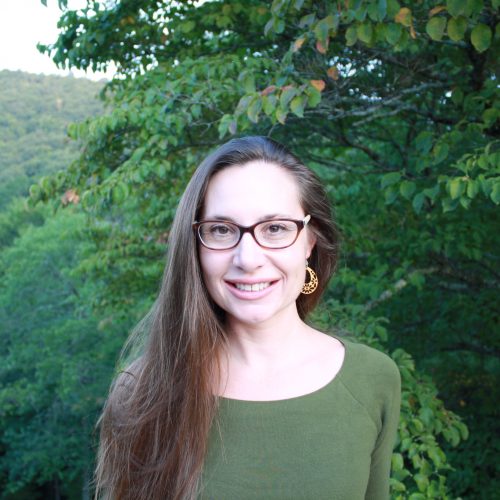
Kathleen Lawlor, Ph.D.
Ascociate Professor of EconomicsContact Information
- klawlor@unca.edu
- 250-3983
- 152 Karpen Hall
Office Hours
- Tuesday 11:15 am - 11:45 am
- Wednesday 10:50 am - 12:20 pm
- Note: Office hours also available by appointment.
Dr. Lawlor is an applied microeconomist specializing in development economics, environmental economics, and impact evaluation. Her research focuses on evaluating the social impacts of policies and programs designed to reduce poverty and improve the well-being of marginalized populations. Her current research examines how various forms of cash transfers – as carbon dividends, baby bonds, and protection for poor children’s human capital – can be designed to maximize positive, transformational impacts and promote equity.
Previous research has investigated how cash transfers in Zambia are building farming households' resilience to climate change, the impacts of cash transfers and tenure security on poverty and land-use in low-income countries, how tropical forest conservation initiatives are affecting local communities’ land rights and income, and the role of ethnobotanical knowledge in traditional medicine in northern Cameroon.
Prior to academia, Dr. Lawlor worked on international environment and development policy with numerous organizations. She has worked for an independent accountability mechanism of the World Bank Group, investigating project-affected communities’ claims of human rights violations and social and environmental harms, for a think tank at Duke University on international climate and forest policy, and with farmers in Cameroon on agroforestry and HIV/AIDS education as a Peace Corps Volunteer. She remains engaged in applied policy work, advising both local and global organizations on how to evaluate and improve their social impacts.
Dr. Lawlor’s courses emphasize the power of the economic approach to causal inference and how economic theory and evidence can be harnessed to fight poverty and inequality through public policy.
Education
- Ph.D., Public Policy, University of North Carolina at Chapel Hill
- M.E.M., Nicholas School of the Environment, Duke University
- B.A., The College of William & Mary
Teaching
- Econ 102 Principles of Microeconomics
- Econ 317 Poverty and Human Capital
- Econ 337 Environmental Economics and Policy
- Econ 365 Econometrics
- Econ 372 Monitoring and Evaluation for Social Impact
- Econ 450 Environment and Development Economics
- Econ 480 Senior Research in Economics
- MLAS ECS 540 Economics of Sustainability
Publications
Visit my Google Scholar page for more information.
Lawlor, K., S. Handa, B. Davis, and D. Seidenfeld. 2019. Poverty-environment relationships under market heterogeneity: Cash transfers and rural livelihoods in Zambia. Environment and Development Economics, 1-24, https://doi.org/10.1017/S1355770X19000305.
Lawlor, K., Sills, E.O., S. Atmadja, L. Lin, and K. Songwathana. 2019. SDG #1: No Poverty – Impacts of Social Protection, Tenure Security, and Building Resilience on Forests. Chapter 1 in Sustainable Development Goals: Their Impacts on Forests and People, Katila, P., C.J.P. Colfer, W. de Jong, G. Galloway, P. Pacheco, and G. Winkel (Eds.). Cambridge, UK: Cambridge University Press, https://doi.org/10.1017/9781108765015.
Lawlor, K., S. Handa, and D. Seidenfeld. 2019. Cash transfers enable households to cope with agricultural production and price shocks: Evidence from Zambia. Journal of Development Studies, 55:2, 209-226, https://doi.org/10.1080/00220388.2017.1393519. (published online November 2017)
Sills, E.O., C. de Sassi, P. Jagger, K. Lawlor, D.A. Miteva, S.K. Pattanayak, W.D. Sunderlin. 2017. Building the evidence base for REDD+: Study design and methods for evaluating the impacts of conservation interventions on local well-being. Global Environmental Change 43: 148-160.
Jagger, P., M. Brockhaus, A.E. Duchelle, M.F. Gebara, K. Lawlor, I.A.P. Resosudarmo, W.D. Sunderlin. 2014. Multi-level Policy Dialogues and Actions: Challenges and Opportunities for National REDD+ Safeguards Monitoring, Reporting, and Verification (MRV). Forests 5(9): 2136-2162.
Lawlor, K. and S. Swan. 2014. Mainstreaming multiple benefits in subnational land-use planning: Sourcebook for REDD+ and sustainable landscapes. SNV – The Netherlands Development Organization. Ho Chi Minh City.
Lawlor, K. 2013. Methods for assessing and evaluating social impacts of program-level REDD+. Report for USAID’s Forest Carbon, Markets, and Communities Program. TetraTech: Arlington, VA.
Lawlor, K., E. Myers-Madeira, J. Blockhus, D. Ganz. 2013. Community participation and benefits in REDD+: A review of initial outcomes and lessons. Forests 4: 296-318.
Jagger, P., K. Lawlor, M. Brockhaus, M.F. Gebara, D.J. Sonwa, I.A.P. Resosudarmo. 2012. REDD+ safeguards in national policy discourse and pilot projects. Chapter in Analysing REDD+: Challenges and choices. Edited by Angelsen, A. CIFOR: Bogor, Indonesia.
Ferraro, P., K. Lawlor, K. Mullan, and S.K. Pattanayak. 2011. Forest figures: A review of ecosystem services valuation and policy evaluation in developing countries. Review of Environmental Economics and Policy 6(1): 20-44.
Caplow, S., P. Jagger, K. Lawlor, and E.O. Sills. 2011. Evaluating land use and livelihood impacts of early forest carbon projects: Lessons for learning about REDD+. Environmental Science and Policy 14: 152-167.
Lawlor, K., E. Weinthal, and L.P. Olander. 2010. Institutions and policies to protect rural livelihoods in REDD+ regimes. Global Environmental Politics 10(4): 1-11.
Jagger, P., E. Sills, K. Lawlor, and W. Sunderlin. 2010. Guide to learning about livelihood impacts of REDD+ projects. CIFOR: Bogor, Indonesia.
Lawlor, K., L.P. Olander, and E. Weinthal. 2009. Sustaining livelihoods while reducing emissions from deforestation: Options for policymakers. Nicholas Institute Working Paper 09-02, Duke University.
Lawlor, K., A. Jenkins, L.P. Olander, and B.C. Murray. 2009. Expanding the scope of international terrestrial carbon options: Implications of REDD+ and beyond. Nicholas Institute Report (for WWF), Duke University.
Pfaff, A., E. Sills, G. Amacher, M.J. Coren, K. Lawlor and C. Streck. 2009. Policy Impacts on Deforestation: Lessons from Past Experiences to Inform New Initiatives. Nicholas Institute Report, Duke University.
Lawlor, K. and D. Huberman. 2009. Reduced Emissions from Deforestation and Degradation (REDD) and Human Rights. Chapter in Rights-based approaches: Exploring issues and opportunities for conservation. Edited by Campese, J. et al. CIFOR and IUCN: Bogor, Indonesia.
K. Lawlor (with L. Olander, W. Boyd, J.O. Niles, and E. Myers-Madeira). 2009. Addressing the Causes of Tropical Deforestation: Lessons Learned and the Implications for International Forest Carbon Policy. Nicholas Institute Policy Brief 09-09, Duke University.